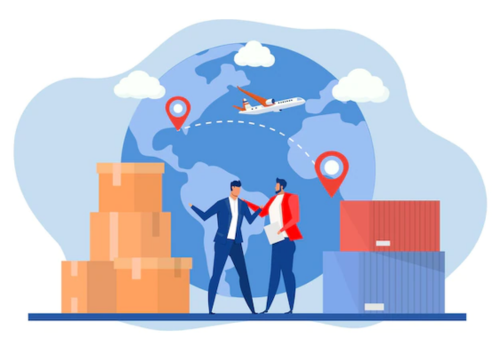
Trade Compliance, Risk Management, and Innovation: Navigating the Modern Trade Landscape:
In today's interconnected global economy, navigating the complexities of trade involves more than just executing transactions. Generally it requires a deep understanding of compliance, risk management, and the role of innovation.
What is trading?
Traders engage in various markets, including stock markets, forex (foreign exchange) markets, and commodity markets, each with its own unique characteristics and dynamics. The primary goal is to identify profitable opportunities and execute trades based on market analysis and strategies.
1.Trade Compliance: Meeting International Standards
Trade compliance is crucial for businesses engaged in international commerce. Adhering to global trade standards ensures smooth operations and avoids costly legal issues. Here’s what you need to know:
Regulatory Framework: Each country has its own set of regulations governing trade, including tariffs, import/export restrictions, and customs procedures. Businesses must be familiar with the regulations of both their home country and their trading partners.
International Trade Agreements: Free trade agreements (FTAs) and trade blocs like the European Union (EU) or North American Free Trade Agreement (NAFTA) often dictate the terms of trade between countries. Staying updated on these agreements can help businesses optimize their trade practices and take advantage of preferential treatment.
Documentation and Procedures: Proper documentation, such as invoices, certificates of origin, and shipping manifests, is essential for compliance. Errors or omissions can lead to delays, fines, or even seizure of goods.
2. Risk Management: Identifying and Managing Trade Risks
Effective risk management is vital to safeguarding trade operations and ensuring business continuity. Key risk management strategies include:
- Risk Assessment: Identifying potential risks in the trade process is the first step. These risks can include political instability, economic fluctuations, regulatory changes, and supply chain disruptions. A thorough risk assessment helps businesses prepare for and mitigate these risks.
- Insurance and Hedging: Trade insurance can protect against risks such as cargo damage or non-payment by buyers. Additionally, financial instruments like forward contracts and options can hedge against currency fluctuations and commodity price volatility.
- Due Diligence: Conducting due diligence on trading partners helps in assessing their financial stability, reputation, and compliance with legal standards. This practice reduces the risk of engaging in transactions with unreliable or unscrupulous partners.
3. Anti-Money Laundering (AML): Ensuring Compliance
Anti-Money Laundering (AML) regulations are designed to prevent the use of trade to facilitate illegal activities such as money laundering and terrorism financing. Here’s how to ensure compliance:
- Know Your Customer (KYC): Implementing robust KYC procedures helps in verifying the identity of customers and understanding their business operations. This step is crucial for preventing illicit transactions.
- Transaction Monitoring: Regular monitoring of transactions can help identify suspicious activities or patterns that may indicate money laundering. Automated systems can aid in tracking and analyzing large volumes of data efficiently.
- Record Keeping: Maintaining detailed records of transactions, including customer details and trade documentation, is essential for compliance and for responding to regulatory inquiries.
4. Innovative Trade Practices: New Methods and Technologies.
Innovation is rapidly transforming trade practices, making processes more efficient and opening new opportunities. Key areas of innovation include:
- Digital Trade Platforms: Online trading platforms and marketplaces have revolutionized how businesses conduct trade, enabling global reach and streamlined operations. Technologies like these are enhancing transparency and security in transactions.
- Artificial Intelligence (AI): AI is increasingly used for predictive analytics, optimizing supply chains, and improving customer service. AI-driven insights can help businesses anticipate market trends and make informed decisions.
- Automation and Robotics: Automation in logistics and warehousing improves efficiency and reduces operational costs. Robotics in manufacturing and supply chain management also contribute to faster and more accurate trade operations.
5. Trade and Intellectual Property: Protecting Innovations
Intellectual property (IP) protection is crucial in global trade, especially for companies relying on innovative products and technologies:
- IP Rights: Securing patents, trademarks, and copyrights ensures that a company’s innovations are protected from unauthorized use or infringement. This protection is essential for maintaining a competitive edge in the global market.
- Enforcement: Effective enforcement of IP rights involves monitoring for infringements and taking legal action when necessary. Working with legal experts in international IP law can help in navigating the complexities of different jurisdictions.
- Licensing and Agreements: Licensing agreements allow businesses to monetize their IP while ensuring compliance with international IP laws. Clear agreements help in managing and protecting IP rights across different markets.
6. Trade in Services: Growing Sectors and Their Impact
The trade in services is an increasingly significant aspect of the global economy, with sectors such as finance, technology, and professional services experiencing substantial growth:
- Service Exports and Imports: Securing patents, trademarks, and copyrights ensures that a company’s innovations are protected from unauthorized use or infringement. This protection is essential for maintaining a competitive edge in the global market.Service trade involves the export and import of services such as consulting, software development, and financial services. This sector is growing rapidly due to advancements in technology and increased global connectivity.
- Impact on Economies: Service trade contributes significantly to economic growth and job creation. Countries with strong service sectors often enjoy higher levels of economic development and global influence.
- Regulatory Challenges:Navigating the regulations governing cross-border services can be complex. Businesses must understand and comply with the regulatory requirements of both their home country and their trading partners.
Conclusion.
Navigating the modern trade landscape involves a multifaceted approach that includes ensuring compliance with international regulations, managing risks effectively, and leveraging innovation. By staying informed about regulatory requirements, implementing robust risk management strategies, and embracing new technologies, businesses can enhance their trade operations and capitalize on new opportunities in the global market. As trade continues to evolve, adapting to these changes will be key to maintaining competitiveness and achieving long-term success.